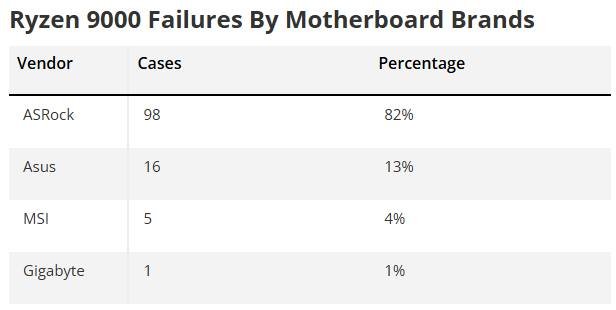gogogozillla
Beginner
Came across this reddit post today where a user has been tracking a number of failures on ASRock motherboards paired with a 9800x3D. He links a number of such posts for evidence and ASRock supposedly has been refusing to acknowledge the issue and denying the issues as isolated incidents.
Sharing this here so ASRock users can be aware and report the problem immediately and future buyers can reconsider other options till ASRock offers a fix. If a fix is offered or ASRock offers any other solution such as RMA/refund, I will share an update on this post/thread.
Link: So as of today, there are 108 cases and counting. It is not limited to ASRock motherboards, other brands are also affected. It is likely to be an x3D processor issue, because some 9950x3D users have also faced this sudden failure. [Link]
There is a web form, which is being used to collect case information, to hopefully identify the faulty batches causing this issue. If you are affected by this problem, please fill the form: [Link]
Sharing this here so ASRock users can be aware and report the problem immediately and future buyers can reconsider other options till ASRock offers a fix. If a fix is offered or ASRock offers any other solution such as RMA/refund, I will share an update on this post/thread.
Link: So as of today, there are 108 cases and counting. It is not limited to ASRock motherboards, other brands are also affected. It is likely to be an x3D processor issue, because some 9950x3D users have also faced this sudden failure. [Link]
There is a web form, which is being used to collect case information, to hopefully identify the faulty batches causing this issue. If you are affected by this problem, please fill the form: [Link]
Last edited:










